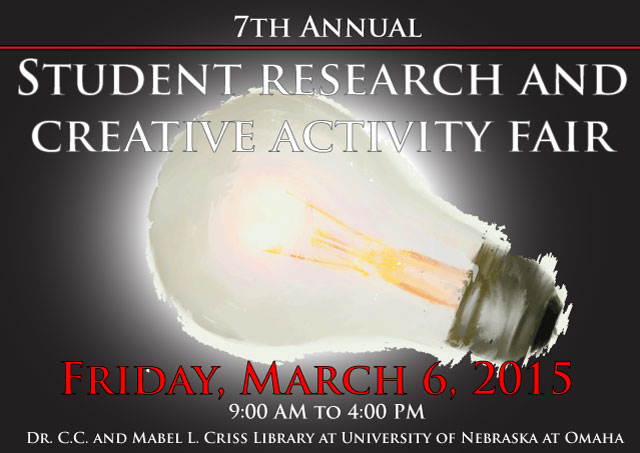
Towards Fast and Reliable Robot Navigation in Unknown and Unstructured Environments using Transfer Learning
Advisor Information
Prithviraj Dasgupta
Location
UNO Criss Library, Room 232
Presentation Type
Oral Presentation
Start Date
6-3-2015 9:00 AM
End Date
6-3-2015 9:15 AM
Abstract
In my presentation I will present my research study which investigates artificial intelligence techniques based on the concept of machine learning to improve existing navigation methods for autonomous robots resulting in fast, energy-aware and resilient locomotion in uncertain and unstructured environments. Our main solution approach is to provide a robot with data comprising key navigation maneuvers that are collected from robots’ locomotion in previous albeit different environments. The problem facing the robot is to identify which maneuvers are keys to successful navigation in its current environment and how to adapt these maneuvers from previous environments to the current one. We plan to explore a technique called transfer learning to address this problem. Our proposed approach is based on the insight that although different robot- environments (e.g., rooms in an office space) might be disparate from each other, there are certain common geometric patterns that persist across the different environments. We hypothesize that a robot’s navigation performance can be improved if such geometric patterns in its current environment could be matched to similar patterns recorded by it from its past environments, and the corresponding retrieved actions could be reused, after appropriate adaptation to the current scenario. Our solution technique will combine the concept of transfer learning along with a point cloud matching algorithm Iterative Closest Point (ICP) and a random sampling based motion planner Rapidly Exploring Random Trees (RRT). The techniques that we develop will be verified on a simulated as well as a physical wheeled robot called Coroware Corobot.
Towards Fast and Reliable Robot Navigation in Unknown and Unstructured Environments using Transfer Learning
UNO Criss Library, Room 232
In my presentation I will present my research study which investigates artificial intelligence techniques based on the concept of machine learning to improve existing navigation methods for autonomous robots resulting in fast, energy-aware and resilient locomotion in uncertain and unstructured environments. Our main solution approach is to provide a robot with data comprising key navigation maneuvers that are collected from robots’ locomotion in previous albeit different environments. The problem facing the robot is to identify which maneuvers are keys to successful navigation in its current environment and how to adapt these maneuvers from previous environments to the current one. We plan to explore a technique called transfer learning to address this problem. Our proposed approach is based on the insight that although different robot- environments (e.g., rooms in an office space) might be disparate from each other, there are certain common geometric patterns that persist across the different environments. We hypothesize that a robot’s navigation performance can be improved if such geometric patterns in its current environment could be matched to similar patterns recorded by it from its past environments, and the corresponding retrieved actions could be reused, after appropriate adaptation to the current scenario. Our solution technique will combine the concept of transfer learning along with a point cloud matching algorithm Iterative Closest Point (ICP) and a random sampling based motion planner Rapidly Exploring Random Trees (RRT). The techniques that we develop will be verified on a simulated as well as a physical wheeled robot called Coroware Corobot.
